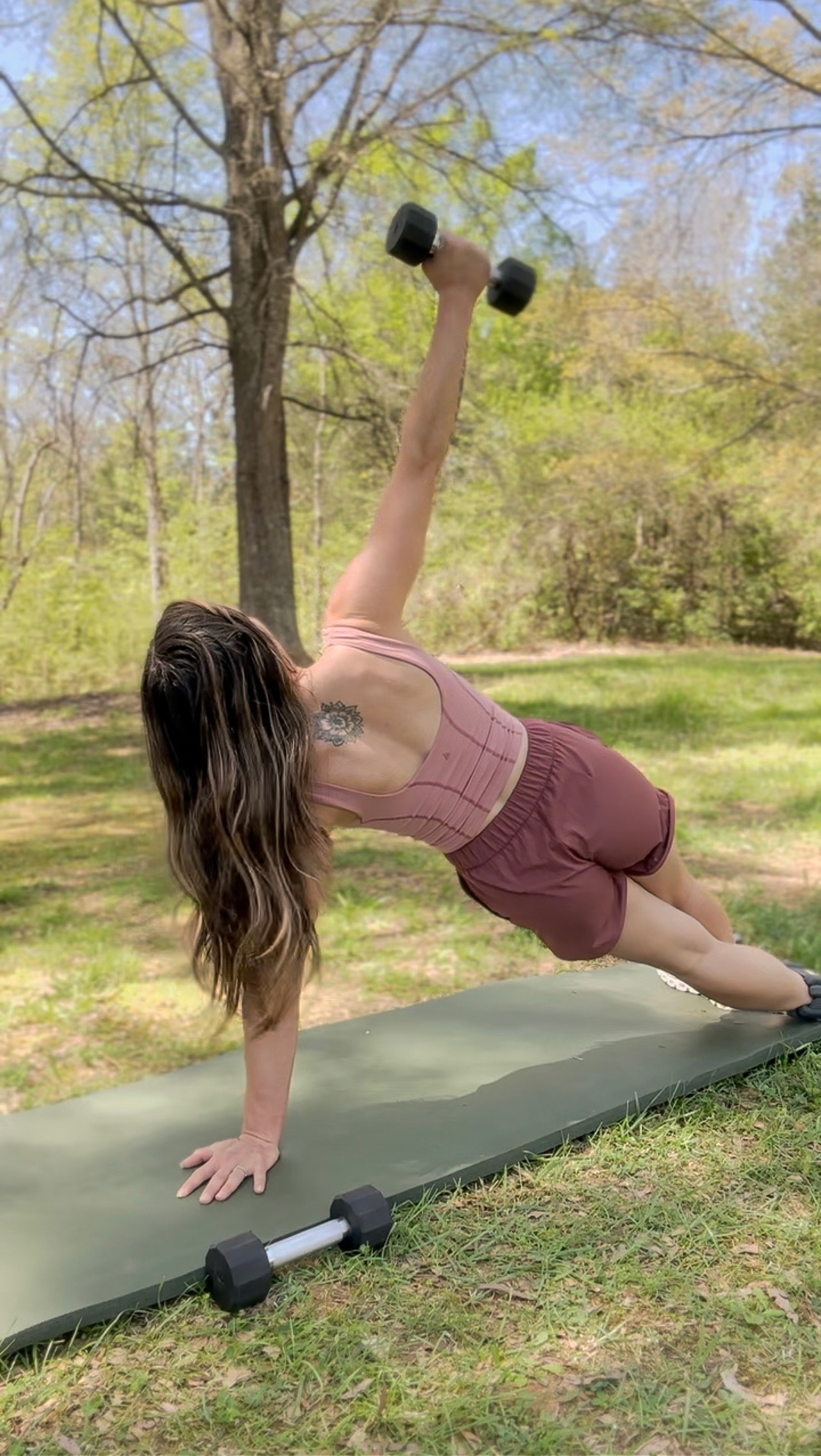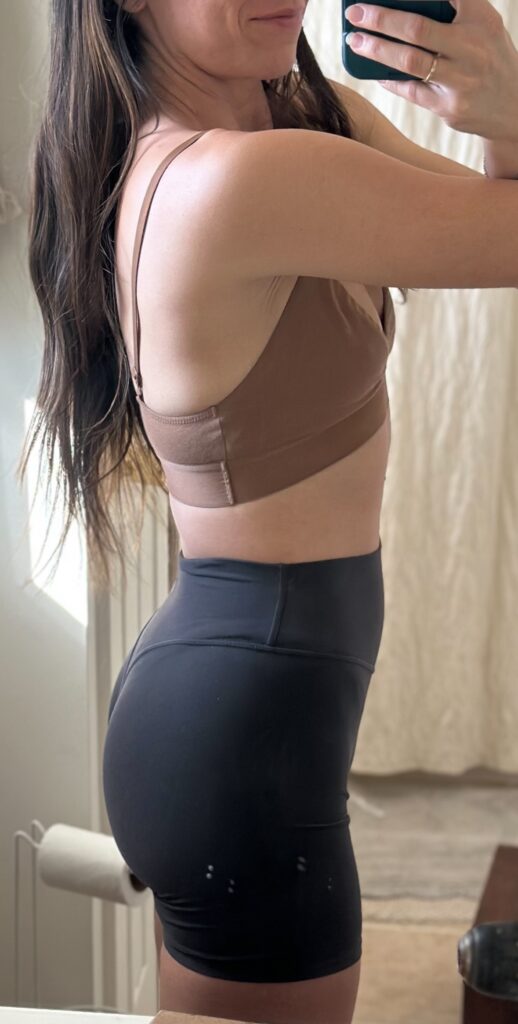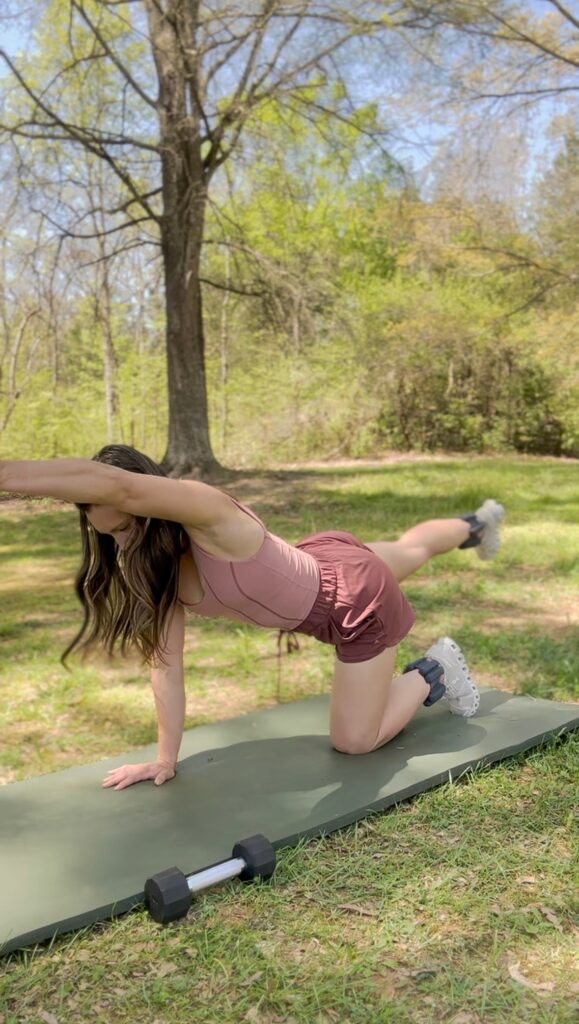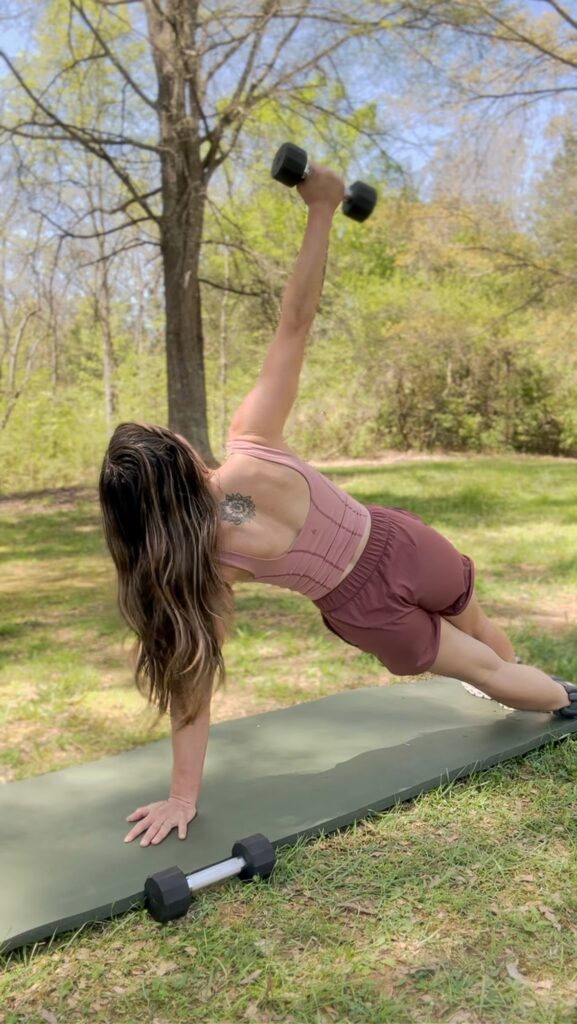
Do you want to learn how to lose weight for the summer— without crash dieting? The thing about crash diets is that though they may work in the short term, they almost always fail in the long term. This is because rapidly reducing your caloric intake forces your metabolism to eventually slow down and work more efficiently. This leads to more weight gain in the future when you stop dieting and begin to eat more than 1,500 calories a day. So, if you’re tired of the yo-yo dieting and want real, sustainable results that you can start to see before summer starts— then this post is for you! Let’s dive into how to lose weight for the summer— without dieting.
Tip #1 Center Your Meals Around Protein
Protein has become trendy lately— and for good reason! There’s a reason why fitness influencers, body builders, and healthy athletes harp on about getting enough protein daily— and that’s because protein builds muscle!
If you want to lose fat, you need to build muscle. Muscle tissue burns more calories than fat tissue— even at rest. This leads to a higher resting metabolic rate, which helps you to burn more calories throughout the day, even when you’re not exercising.
Plus, protein is incredibly satiating. Protein takes much longer to digest than quick-burning carbohydrates, which leads to feeling fuller for longer, and decreased desire to snack in between meals.
The body also expends more energy simply to digest protein compared to carbohydrates and fats— which is called the thermic effect of food, or TEF. This increased energy expenditure leads to a boost in metabolism, which helps you burn even more calories throughout the day.
So if weight loss is your goal— you must be incorporating protein into each meal! But how much protein should you be eating? Aim for at least 30-35 grams of animal protein at each meal for the best results!
Looking for high-protein recipes? Check out my homemade rotisserie chicken recipe, cottage cheese flatbread, healthy burger bowls, instant pot roast, and DIY bone broth!
Tip #2 Stop Snacking
When you constantly snack throughout the day, you’re not allowing your digestive system to have periods of rest to repair and regenerate. This rest time is essential for proper digestion— and good digestion is key when it comes to weight loss.
Poor digestion often leads to weight gain since it impacts your body’s ability to absorb nutrients and manage your metabolism. When your digestive system isn’t functioning properly, you can experience slower metabolism, reduced nutrient absorption, and weight gain.
If you feel the need to constantly snack throughout the day, you should reassess your meals. Are you eating adequate amounts of protein, healthy fats and complex carbohydrates at each meal to sustain your appetite and provide you with enough energy throughout the day?
Often the desire to snack often is linked to blood sugar imbalance due to consuming high-carbohydrate and processed foods that cause rapid highs and lows in blood sugar levels. This blood sugar roller coaster can create a perpetual cycle of snacking.
So if you’re looking to lose weight for the summer, one of the best things you can do is to focus on eating balanced meals throughout the day. This will prevent the snack cravings. And make sure to allow 4-5 hours between meals to allow your food to be fully digested before eating again.
Tip #3 No More Chronic Cardio
For years we were told that if we wanted to lose weight that we should focus on cardio— but that’s just not the case. Chronic cardio or over-exercising can negatively impact your health. Chronic cardio impacts your hormones, metabolism, and muscle mass— which can lead to weight gain and inflammation. This is because chronic cardio increases cortisol levels due to the stress it puts on the body. Long-term, excessive increases in cortisol can be harmful to our health, whereas short bursts of cortisol during exercise can be beneficial.
So what should you do instead? Focus on 2-3 strength training sessions per week, walking daily, and sprinting once a week. Sprinting, unlike long-duration cardio workouts, increases muscle growth, promotes fat loss, enhances metabolic rate and reduces inflammation.
Remember that your hormones, metabolism, and muscle mass play a huge role in your weight loss journey. So in order to lose weight and keep it off, it important to not over-stress the body with chronic cardio and over-exercising.


Tip #4 Wear a Weighted Vest
This is my favorite tip, because it’s sustainable, easy to incorporate into your daily routine, and actually works! Walking daily (especially after meals) is a great way to balance your blood sugar levels and burn fat. By adding a weighted vest into your walking routine, you’ll burn more calories and build muscle. Both of which are essential when it comes to losing weight!
Since using a weighted vest makes your body work harder, it strengthens your muscles (particularly your legs and core) and burns more calories. The increase in your muscle mass boosts your metabolism and promotes more calorie burning— even at rest.
Though walking outside in nature is the best choice— you can get yourself a walking pad to use indoors. Wear your weighted vest and watch your favorite tv show at home while getting in your steps! Aim for 7,000-10,000 steps a day and you’ll be able to reach your weight loss goals and keep the weight off!
Tip #5 Avoid Eating at Night
I know so many women who have struggled with weight loss due to their meal timing. They often skip breakfast, then end up starving by the end of the day. This leads them to eating big meals late in the day, when in reality— they should be eating less— if at all, at the end of the day.
This is because our body is perfectly designed to sync up with the day’s light and dark cycles— which signals our body to be awake and alert during the day, and to get tired at night so that we can sleep deeply. But if you’re eating late at night and skipping breakfast, you’re basically flipping our body’s design on its head. This can disrupt sleep and lead to increased fat storage.
Our digestion is primed and ready in the morning and throughout the afternoon, but begins to slow down at night. Avoiding eating after sunset is an incredibly effective and sustainable way to encourage weight loss. Plus, by creating a longer gap time between dinner and breakfast, you’ll be practicing intermittent fasting. Intermittent fasting allows your body to deplete its glucose stores, and tap into fat burning to produce energy. Intermittent fasting will not only help you shed the weight, but keep it off in the long run.
Want More Effective Tips to Lose Weight and Keep It Off (Without Crash Dieting?)
My brand new membership, Rooted in Wellness, is designed to teach you how to feel and look your best by using sustainable, natural practices that actually work! No more counting calories, no more crash dieting, and no more low-energy, hungry days while you’re trying to lose weight! With 10 value-packed modules on topics like diet, exercise, non-toxic living, hormonal health, circadian rhythm and more, you’ll be able to identify which daily habits of yours might be holding you back from reaching your health goals. Plus, I’ll be offering live Q&As and coaching, weekly nutrient-dense meal plans, future crash courses and so much more! Click here to join today! I’ll see you inside!


If you liked this blog post, check out my recent posts:


